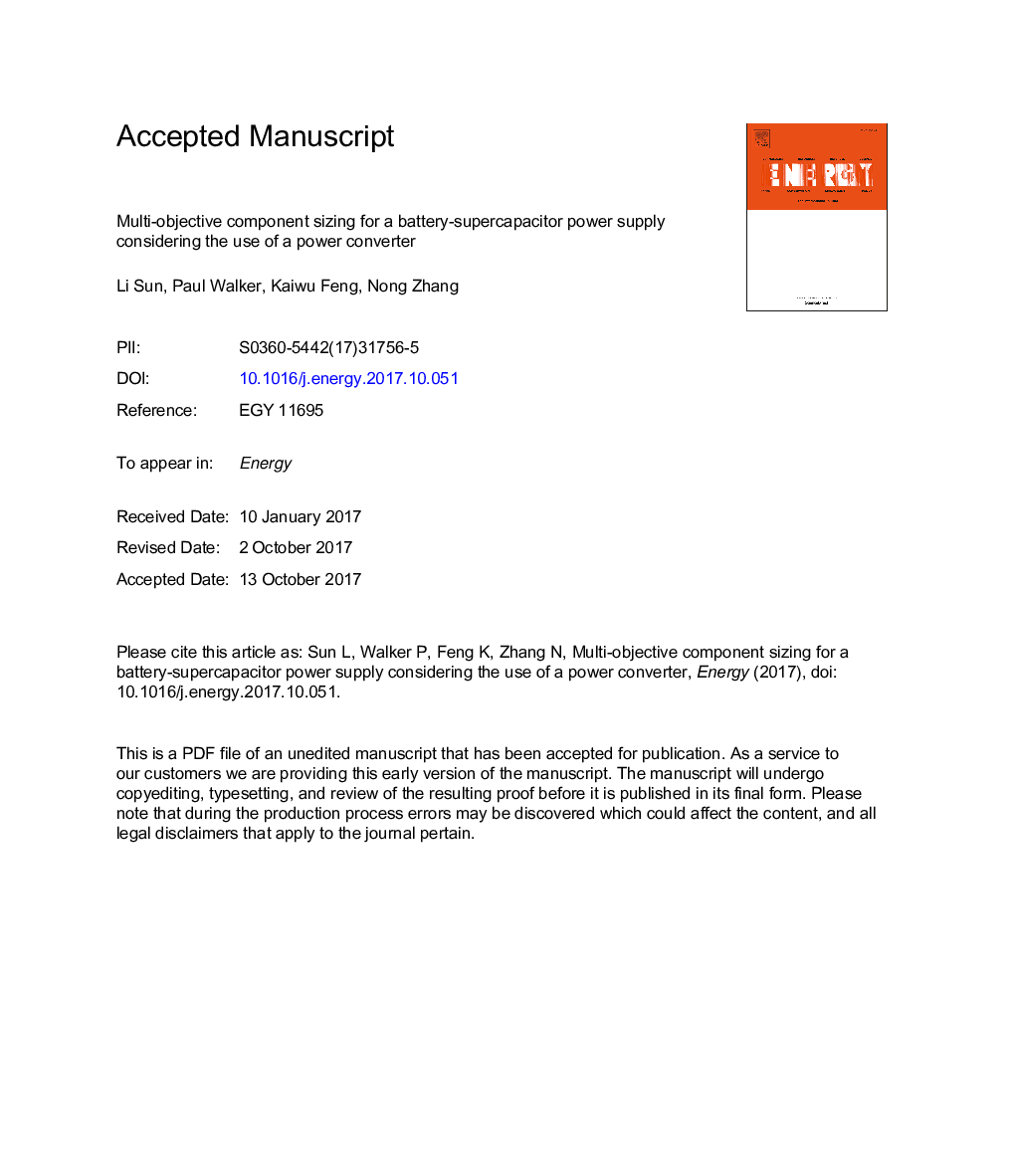| Article ID | Journal | Published Year | Pages | File Type |
|---|---|---|---|---|
| 8072511 | Energy | 2018 | 23 Pages |
Abstract
Owing to a lack of power density of conventional batteries, the onboard energy storage systems of an electric vehicle has to be oversized to compensate worst-case load condition, which is sub-optimal as it induces a heavy penalty on overall system weight and cost. One solution to overcome this limitation is to hybridize it with supercapacitors in order to boost its power performance via a power converter. This paper presents a multi-objective optimization problem over the parameters of such hybrid energy storage systems, with the aims to solve two conflicting objectives - cost and total stored energy in the hybrid energy storage system, under a set of pre-defined design constraints. An algorithm is first developed to find all feasible solutions to the problem. Two popular design examples are then tested differentiating Lithium Iron Phosphate based batteries from Lithium Manganese Oxide/Nickel-Cobalt-Manganese based batteries. A Pareto frontier is recreated for each example and an ξ-constraint method is finally adopted to choose the best member for comparison. This is so far, according to the authors' knowledge, the first reported multi-objective optimal sizing method for an active hybrid energy storage system considering the effect of the power converter to gain a clearer understanding of its impact over various design choices.
Related Topics
Physical Sciences and Engineering
Energy
Energy (General)
Authors
Li Sun, Paul Walker, Kaiwu Feng, Nong Zhang,
